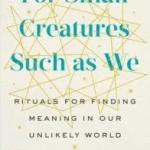 In essence, mindfulness has two components: awareness and the ability to focus awareness. Awareness is a given and we can’t really change it. The ability to focus awareness, however, is a skill that we can strengthen and improve with practice. A more focused awareness is often experienced as an increased awareness.
In essence, mindfulness has two components: awareness and the ability to focus awareness. Awareness is a given and we can’t really change it. The ability to focus awareness, however, is a skill that we can strengthen and improve with practice. A more focused awareness is often experienced as an increased awareness.
Awareness and the ability to focus it form the base of our being, our deepest subjectivity. The word “subjectivity” has not been treated well in modern culture. It is often contrasted with “objectivity,” and in that contrast, subjectivity is treated as the inferior term.
As contrasted with objectivity, subjectivity carries overtones of opinion, bias, and emotionalism in its meaning. In any form of modern scholarship, and particularly in science, opinion, bias and emotionalism have no place in good methodology. There is, however, another meaning to the word “subjectivity” that is quite different from that which is contrasted to objectivity. And that, as mentioned above, is our basic awareness and ability to focus it.
In this sense, subjectivity refers to what we are to ourselves. Awareness and the ability to focus it is the basis of all our experience of the world, including the experience of objectivity. Without awareness, we are simply unconscious. Without the ability to focus awareness, we have a serious attention disorder.
I think it unfortunate that there is this confusion that arises from the common meaning that devalues the word “subjectivity.” One of the great values of forms of mindfulness such as meditation and contemplation, is that they can reacquaint us with our deepest Subjectivity (I will capitalize this sense to distinguish it from the other sense).
It’s odd that we should need to become reacquainted with that which we most deeply are, but we live in a culture that is so radically exteriorized, that many of us have no real grounding in that interior that is our Subjectivity. It requires an extensive mindfulness practice of some form to bring us back to the roots of our being.
When we are well acquainted with our Subjectivity, when we can live comfortably within it, we have a center. We know exactly what we are and no mere ideas can cause existential distress.
In a couple of recent articles I have posted here, “Getting Comfortable with the Vastness of Time” and “The Enormity of it All,”(1) I suggested that if we contemplate the vastness of time and space grounded in our Subjectivity, we can feel perfectly comfortable with it. We are what we are, and what we are is exactly what we Subjectively experience. From that point of view, questions of, or facts about, what we are or why we are are not relevant. There is only the is-ness, and it is the answer.
* * * * *
I should probably end this article with that last sentence, but there is an idea from Zen that I find rather beautiful and that is relevant here. What I call “is-ness” above is called tathata in Zen, which is usually translated as “suchness.” This term is often joined with another term sunyata, which is usually translated as “emptiness.” It is something of a spiritual paradox that tathata, which is an experience of the fullness of being, and sunyata, the voidness of being, are closely related. In fact, they are two faces of the same experience.
In another article I posted here a while back, I make the statement that “the self is all otherness.”(2) I emphasize that this statement has two sides: one) that the self is, which is precisely the experience of our Subjectivity brings fully home to us; and two) that what the self is, is a great otherness. It is the otherness of our physical and biological nature, along with what we have been given by culture and experience.
In other words, the otherness that we most truly are, is Nature itself. We are fully a part of the great process of Nature, and never for a moment are we anything else. The idea that there is something within us that stands apart from the causality of Nature is a grand illusion. An illusion that causes us alienation and suffering.
To truly experience that which is both sunyata and tathagata is at the apex of spiritual experience. It is the Zen equivalent of the Christian experience of being totally one with God. It is an experience reserved for those who are most spiritually dedicated.
But I think that anyone who practices mindfulness regularly and with a degree of dedication will have fleeting moments of this experience. And even a fleeting moment of it can give one a renewed sense of the possibilities of existence.
__________
Notes:
1) Getting Comfortable with the Vastness of Time, published Jan, 13, 2022 and The Enormity of it All, published Sept. 1, 1922
2) The All-Inclusive (What Naturalism Means to Me), published Sept. 6, 2018












